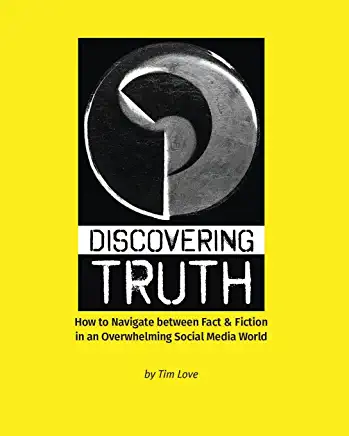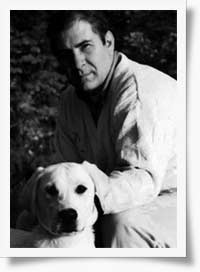Jefferson said, “Error of opinion may be tolerated where reason is left free to combat it.” There has never been a time when we as a country have had to contend with so much of one with so little of the other.
That’s saying a lot when you consider the context of the times. Hard as it may be to believe given his exalted position in our panoply of heroes, Jefferson’s observation came at the conclusion of the most contentious presidential election in our nation’s history.
On December 3, 1800, the College of Electors began the turmoil when they met to cast their ballots for president. The result was a tie between Thomas Jefferson and Aaron Burr. That required the election be decided by the House of Representatives.
In the House – then as too often now – party, personal animosity, and partisanship reared its ugly head. Election by the House of Representatives requires a vote by delegation. This procedure provided ample opportunity for personal politicking, bribing, cajoling, arm-twisting, promising, and threatening members as state delegations struggled for the consensus required before casting their one vote for the candidate of their choice.
There were thirty-six ballots before the election was decided. Members of the Federalist-controlled Sixth Congress battled for weeks, debating the merits of their two options – Thomas Jefferson or the equally unpalatable Aaron Burr.
When it was over, Jefferson was acutely aware he owed his victory not to his own Republican party but instead to the backstage maneuvering and horse-trading by the members of the opposition – the Federalist party. Aside from everything else, his election marked the first peaceful transition of power between the two political parties.
On Wednesday, March 4, 1801, at the conclusion of this process, Jefferson was given the oath of office by Federalist Chief Justice, John Marshall, and delivered an inaugural address acknowledging the political divisions he faced.
Jefferson called upon people everywhere to unite in common efforts for the common good and to obey the constitution, remembering, “Every difference of opinion is not a difference of principle.”
“We have been called by different names,” he said, “but we are brethren of the same principle. We are all republicans: we are all federalists…Let us, unite with one heart and one mind. Let us restore to social intercourse that harmony and affection without which liberty and even life itself are but dreary things.”
Jefferson’s call for unity, harmony, and affection now seems distant and forgotten. We are increasingly buried in disharmony, misinformation, and a cacophony of lies. Truth, always elusive, has become difficult to discern.
We are being pulled apart, polarized and overwhelmed with diverse opinions, information, facts, theories, rumors and all kinds of commentary portrayed as fact, including blatantly fake news. For truth-seekers, it can seem a dauting and overwhelming task.
Tim Love, a man who has taken a deep dive into the challenges surrounding discerning truth, offers some guidance and assistance. Tim is the former Vice-Chairman of Omnicom Group, the leading worldwide advertising and marketing services company, a truth-seeker by nature, training, and discipline.
Love’s fascination with discovering truth in our modern age began with an awareness that social media platforms have become the primary source of news and other information for the majority of Americans, while the content on these platforms has never been subject to the same standards of truthfulness and non-misleading content as traditional media channels.
“A lot of people don’t consider the kind of information sent by friends in an email to be social media,” Love says. “Actually, it is. Social media is more than apps and platforms like Facebook, Instagram, TikTok, and the like. The content they receive via email is social media because the content is directed to them, based on their interests and behavior express in how they communicate using the internet.”
Blame it on technology, political polarization, foreign actors, or fast-buck artists but understand and accept the fact that we are being attacked by unfiltered information on our unfettered social media highways. It is constant, consistent, and premeditated. The first challenge is to be vigilante and aware it’s happening.
Love’s interest in “Discovering Truth”, led to a popular podcast series, which examines the difficulty of determining truth in a world of heightened social media output, unfettered political propaganda, foreign and domestic extremist content, hacks and lies. A book, just released, Discovering Truth: How to Navigate Between Fact & Fiction in an Overwhelming Social Media World, evolved from these podcasts.
I don’t often recommend books in this forum, but I highly recommend this one. It’s an insight-filled exploration of the role of media in communications and how today’s social media affects trust in institutions and divides an increasingly polarized society.
Tim Love, the author, is not a politician though his producer has suggested he consider running for president – a thought I would readily endorse. He is a dedicated and insightful man with a 42-year career in the advertising industry which provided extensive global brand-building experience with some of the world’s largest and most reputable advertisers while giving him first-hand experience with consumers in over 100 countries.
Tim begins where Jefferson ended. “It is a melancholy truth, that a suppression of the press could not more completely deprive the nation of it’s benefits, than is done by it’s abandoned prostitution to falsehood,” Jefferson wrote near the end of his second term. “Nothing can now be believed which is seen in a newspaper. Truth itself becomes suspicious by being put into that polluted vehicle.”
All the more reason to question and discern truth.


